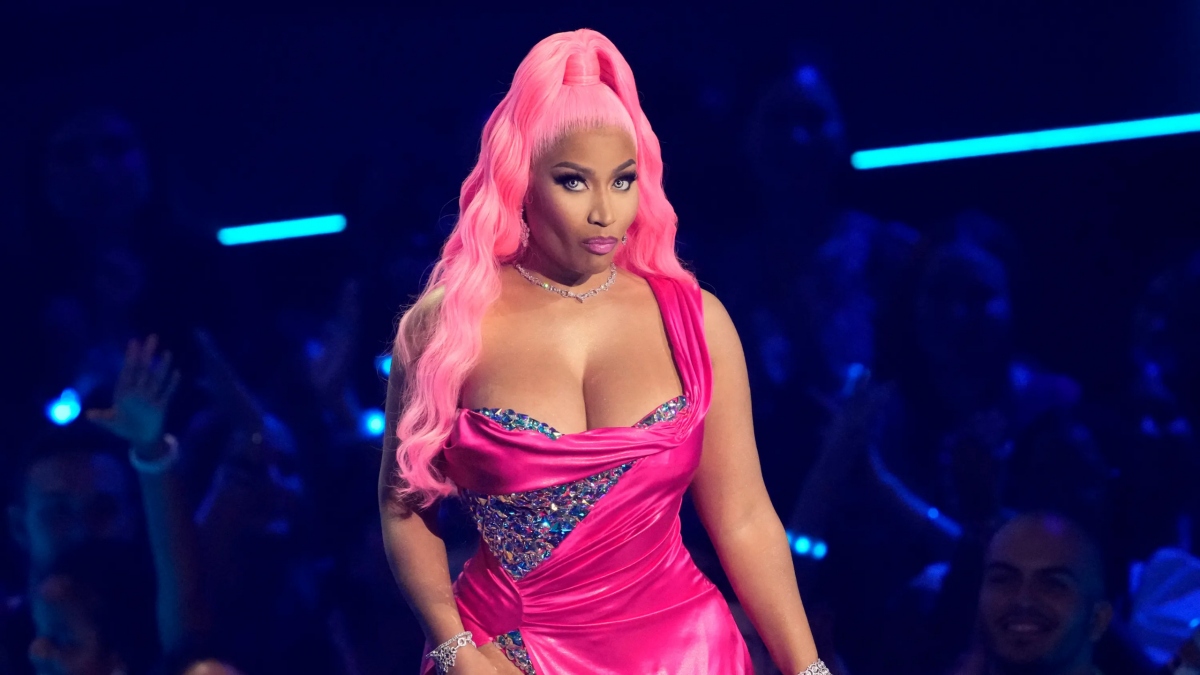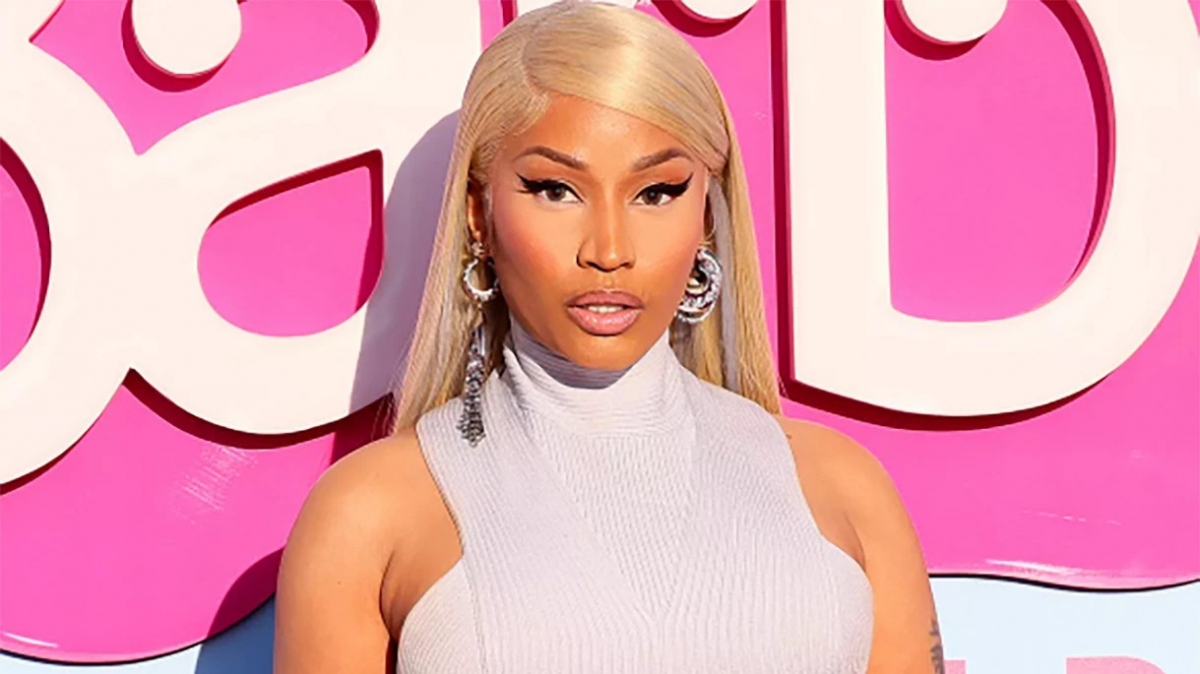Nicki Minaj’s previous comments about Spotify’s treatment of artists, particularly her critique of their apparent favoritism toward Drake during the release of his 2018 album Scorpion, have resurfaced amidst Drake’s ongoing legal battle with Universal Music Group (UMG). This renewed spotlight comes as Drake accuses UMG of employing unethical practices, including streaming bots and payola, to manipulate streaming metrics in favor of Kendrick Lamar’s diss track “Not Like Us.”
Here's ads banner inside a post
The resurfacing of Minaj’s critique has reignited conversations about fairness in the music industry and the power dynamics between artists, record labels, and streaming platforms.
Nicki Minaj’s 2018 Spotify Critique
Back in 2018, during the release of her album Queen, Nicki Minaj took to X (formerly Twitter) to call out Spotify for what she perceived as preferential treatment of Drake. At the time, Spotify prominently featured Drake’s image across its platform, placing him on the covers of nearly every major playlist, including those unrelated to his music. This promotional push coincided with the release of Scorpion, which went on to achieve massive success, selling 732,000 units in its first week.
In contrast, Minaj claimed she was penalized for debuting her album on her Queen Radio platform just 10 minutes before its scheduled release. According to Minaj, Spotify had warned her they would “teach her a lesson” for bypassing traditional release strategies. She vented her frustration on X, writing:
Here's ads banner inside a post
“Spotify put drake’s face on every playlist but told me they’d have to teach me a lesson for playing my music 10 mins early on #QueenRadio. Even tho they’ve been giving away my music for free for years & I am one of the top Spotify artists of all time.”
These remarks highlighted the disparities in how artists are treated by streaming platforms, with Minaj alleging that Spotify was playing favorites despite her long-standing contributions to its platform’s success.

Drake’s Legal Dispute with UMG
Fast forward to 2024, and Drake finds himself on the other side of the debate. The rapper has filed legal petitions against Universal Music Group, accusing the label of manipulating the streaming ecosystem to inflate the popularity of Kendrick Lamar’s diss track “Not Like Us.” Specifically, Drake alleges that UMG:
Here's ads banner inside a post
- Used Streaming Bots: Drake claims UMG utilized bots to artificially generate 30 million Spotify streams for “Not Like Us.”
- Engaged in Payola: The petitions allege that an individual connected to Interscope, Kendrick Lamar’s label under UMG, paid thousands of dollars to enhance the track’s performance.
- Discounted Licensing Fees: Drake also asserts that UMG offered Spotify a 30% discount on licensing fees for the track to secure its placement on major playlists.
These allegations come as Drake faces increasing scrutiny over his own past reliance on Spotify’s promotional muscle. Many in the hip-hop community view his current stance as hypocritical, given that he previously benefited from the same streaming platform he now accuses of enabling unfair practices.

The Hip-Hop Community Reacts
Drake’s legal actions have sparked mixed reactions within the hip-hop community and among fans. While some applaud him for challenging the system, others have criticized him for opposing the very mechanisms that once propelled his career to new heights.
One fan echoed Nicki Minaj’s long-standing grievances, writing:
“This woman never lies about what’s going on in the music industry. Ever.”
Another criticized Drake’s apparent hypocrisy:
“And this why idgaf bout Drake feelings!! Bitch you let my sister BURN.”
Others pointed out the irony of Drake’s situation, noting his history of benefiting from Spotify-driven promotions:
“‘Drake is going against the machine’. ‘Economic harm.’ Funny how tables turn.”
Amid this controversy, Kendrick Lamar’s diss track “Not Like Us” has seen a surge in popularity. According to Talk of the Charts, the song has experienced a 440% increase in sales and a 20% rise in streams since Drake filed his petitions. Meanwhile, Lamar’s latest album N·G·N·X debuted at No. 1 on the Billboard 200, surpassing expectations with 319,000 first-week units sold.

The Power Dynamics of Streaming and Labels
The resurfacing of Minaj’s Spotify critique alongside Drake’s legal battle underscores the complex relationship between artists, record labels, and streaming platforms. As streaming has become the dominant mode of music consumption, platforms like Spotify wield immense power in shaping an artist’s success. Playlist placements, algorithmic boosts, and promotional campaigns can make or break an album’s performance.
For artists like Nicki Minaj, these dynamics have long been a source of frustration. Her 2018 comments highlighted how the industry’s biggest stars can still feel sidelined or penalized by platforms that prioritize certain releases over others. Similarly, Drake’s allegations against UMG point to the potential for exploitation within the streaming economy, where artificial metrics and financial incentives can distort the playing field.
Broader Implications for the Industry
The controversies involving Minaj, Drake, and Kendrick Lamar raise important questions about the future of the music industry. As streaming continues to dominate, transparency and fairness will become increasingly critical issues. Artists are demanding more equitable treatment from platforms and labels, while fans are becoming more aware of the behind-the-scenes practices that influence chart performance.
Drake’s lawsuit also underscores the ongoing tension between major labels and independent artists. If his allegations prove true, they could lead to increased scrutiny of streaming practices and potentially force platforms like Spotify to implement stricter guidelines to prevent manipulation.

Nicki Minaj’s Enduring Influence
For Nicki Minaj, the resurfacing of her Spotify critique serves as a reminder of her longstanding role as a truth-teller in the music industry. While her comments were initially dismissed by some as sour grapes, they now resonate in light of Drake’s legal battle. Her ability to call out inequities, even at the risk of controversy, has cemented her status as one of the most outspoken and influential figures in hip-hop.
As the industry continues to grapple with these issues, Minaj’s 2018 critique feels increasingly prescient. Whether discussing streaming practices, promotional biases, or the broader dynamics of power in the music business, Minaj remains a voice that cannot be ignored.
The intersection of Nicki Minaj’s 2018 Spotify critique and Drake’s 2024 legal battle against UMG highlights the ongoing struggles artists face in navigating the streaming-driven music landscape. While Minaj and Drake occupy different positions in these narratives, both cases illuminate the challenges of achieving fairness and transparency in an industry dominated by algorithms, metrics, and corporate interests.
As the conversation around these issues evolves, one thing is clear: the fight for equity in the music industry is far from over, and artists like Nicki Minaj and Drake are at the forefront of this ongoing battle.

